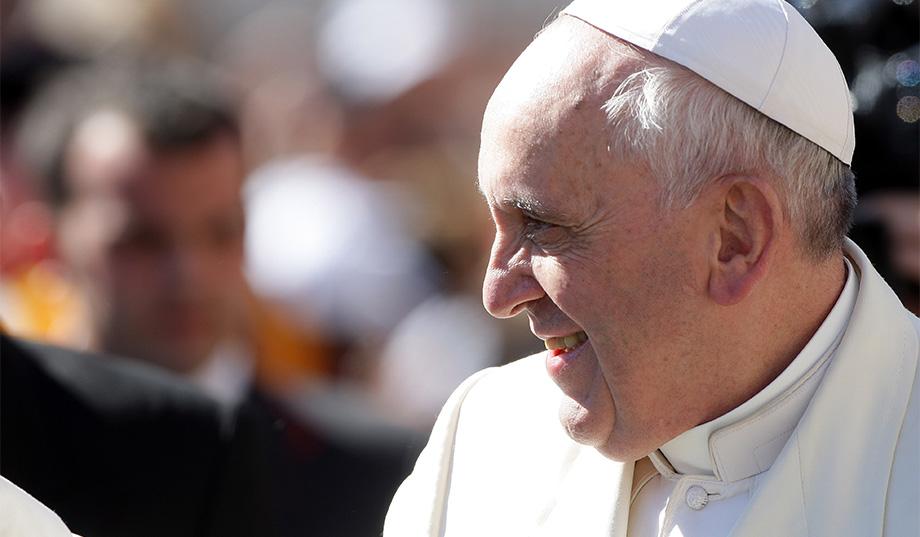At the very moment that Pope Francis is warning the world that “doomsday predictions can no longer be met with irony or disdain,” doomsday is an imminent reality for the ancient Christian communities of the Middle East, most urgently in Syria and Iraq. “What kind of world do we want to leave to those who come after us?” the pope asks in his encyclical Laudato Si’. “No world at all” is the answer for the 70,000 Christians still left in Aleppo, Syria. ISIS surrounds them on three sides. Aleppo may fall to the Islamic terrorists within weeks, with Damascus following. The slaughter of Christian men and other religious minorities will be immense. The women and girls face abduction and sex slavery. Similarly, although the 120,000 Christians living in the refugee camps around Erbil in Kurdistan, which I recently visited, are comparatively safe at the moment, an ISIS victory in Syria would leave them exposed to great danger: They would have nowhere left to seek refuge. For the Christians of Aleppo, it may be too late to flee. Part of the problem for the Christians across the region has been that these “doomsday predictions” have been willfully ignored in the West, just as disingenuous dismissals of ISIS as the “JV team” allowed that deadly force to gain large sections of Iraq and Syria. In March 1937, Pius XI, a predecessor of Pope Francis, promulgated the encyclical Mit Brennender Sorge (With burning anxiety). Pius warned not about the dangers of the London smog but about where National Socialism would lead. It was a timely warning issued just before the full horror was realized. Pope Francis has indeed spoken many times of the persecution of the Christians of the Middle East. On his recent visit to Latin America, he even acknowledged that “a form of genocide is taking place.” He has said that he is “dismayed” by the persecutions and that they need to be “denounced.” Yet there is a certain lack of logic and consistency in his calls for denunciation. And how has dismay led to any action? Asked by a reporter on one of his recent trips if force might be used to defend the Christians, Francis wisely responded that, yes, force was “licit.” He went on to say, however, “But I don’t mean bomb or make war.” He recently denounced the armaments industry, calling those who work in it “unchristian.” Pope Francis should call on the nations of the world, before it is too late, to open their borders generously to receive the thousands of Christian refugees who wish to leave Syria, Iraq, Lebanon, and Jordan. Dismay and denunciation will not stop the eradication of the Christian population of Syria and Iraq. “Burning anxiety” from the pope should lead to two specific responses: one addressed specifically to the Church, and the other to the whole world. Within the Catholic Church, Francis, not averse to giving orders, should ask all his bishops and priests to publicly lead a weekly rosary, in their cathedrals and parishes, for the safety and security of the Christians of the Middle East. For a “dismayed” pastor, this is the least we could expect. At another time of great crisis in the Church, another pope, Saint Pius V, commanded the Catholic world to pray the Rosary for the defeat of the forces of Islam. The victory of the Christian navy at the Battle of Lepanto saved Western civilization. Pope Francis enjoys uncritical acclamation from media worldwide. He should turn that into an opportunity to call on the nations of the world, before it is too late, to open their borders generously to receive the thousands of Christian refugees who wish to leave Syria, Iraq, Lebanon, and Jordan. This may mean circumventing bishops in those nations. Understandably, they fear the prospect of losing their flocks. But as one priest said to me in Iraq, “We can rebuild community, we can’t rebuild people.” Some of the hierarchy realize that the time for equivocation has run out. “Help us fight ISIS or get us out!” the refugee Archbishop Moushe of Mosul recently said. It is widely reported that Francis will use his address to the U.N. General Assembly in September to, once again, talk about the environment. What a wasted opportunity. A strong call from the pontiff to the nations of the world — for example, to his own Catholic nation of Argentina — to welcome Christians who face imminent death or sex slavery could make all the difference. If Pope Francis fails to do more than denounce and be dismayed, he will be remembered not as the pope who saved the planet but as the pope who chose not to save his people. — Father Benedict Kiely is pastor of Blessed Sacrament Parish in Stowe, Vt., and director of continuing education for clergy in the Diocese of Burlington. He is the founder of Nasarean.org, which supports persecuted Christians in Iraq, Syria, and around the world.
Source: Ankawa.com






